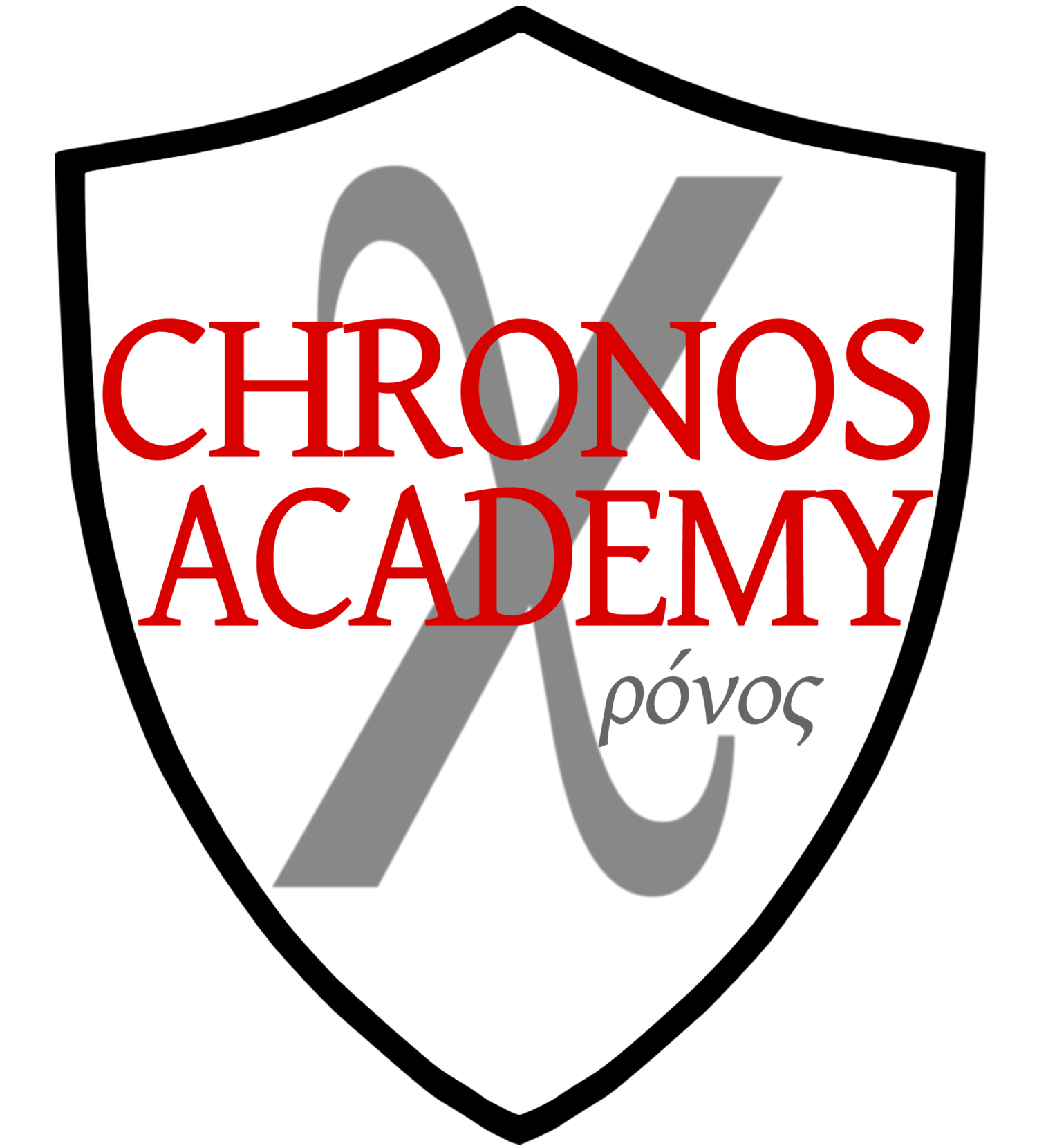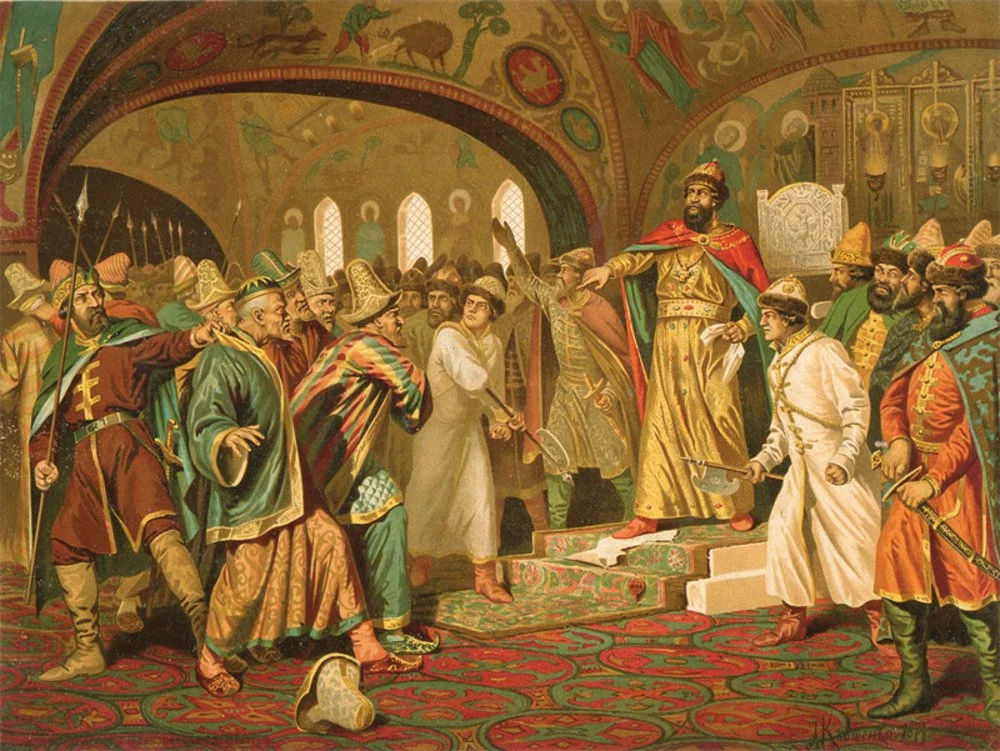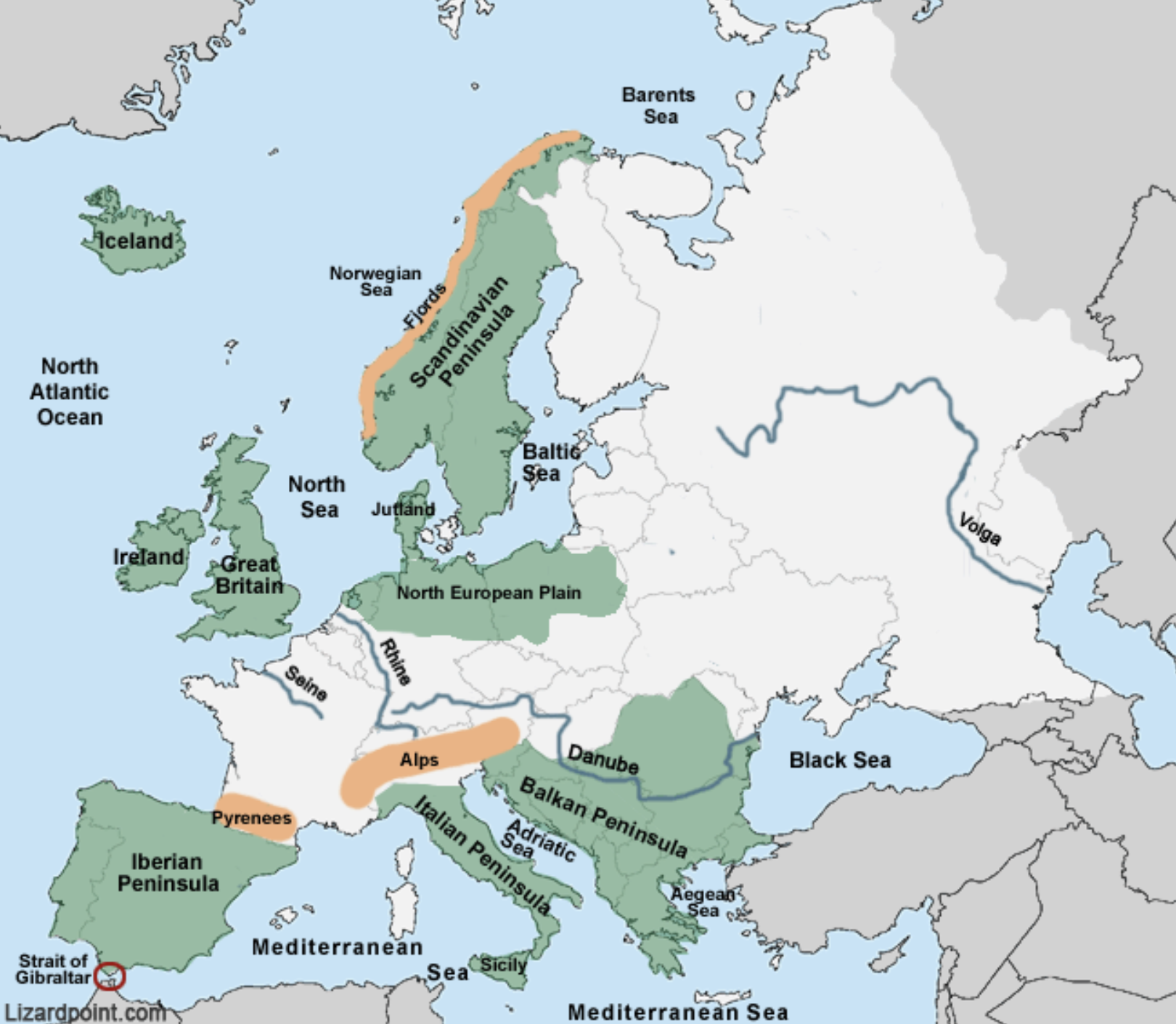Industry
Middle Ages Week 16
January 10-14, 2022
Memorize, Research & Explore these topics this week.
History
Ivan the Great freed Moscow from the Golden Horde, united Russia, built his palace in the Kremlin in 1462. Ivan the Terrible, tsar of Russia, went mad and committed crimes against his people, and eventually killed his son who was heir to the throne.
Story of the World, Vol. 2, Chapters 23
Geography
Europe Physical Features:
Scandinavian Peninsula
Iberian Peninsula
Italian Peninsula
Balkan Peninsula
Fjords
Pyrenees
Alps
Practice labeling from memory on this map.
Challenge: Practice drawing the map free hand from memory.
Current Events
"Countires in China's Belt and Road Initiative: Who's In and Who's Out?"
English
Linking verbs:
appear
become
feel
grow
look
remain
seem
smell
sound
taste
turn
am
are
is
was
were
be
being
been
Greek
ἀλλά but
εἰ if
ὅτι because, that
δέ and, but
Science
Occultation is the passing of one astronomical body in front of another.
ibn Bajja - Avempace
Math
If a system of linear equations has at least one solution, it is consistent.
If a consistent system has exactly one solution, it is independent.
If a consistent system has an infinite number of solutions, it is dependent.
If a system has no solution, it is inconsistent.
Omar Khayyam
Art
Ming Lacquer
Literature
The Rubáiyát
Omar Khayyám
Philosophy
“Be happy for this moment. This moment is your life.”
― Omar Khayyám, The Rubáiyát
Music Appreciation
Russian folk song. KOROBUSHKA. "Russian Cossack". PEDLARS
Composer
Johannes Ockeghem (1420 - 1497)
Weekly Assignments
Memory Work
Review this session’s Memory Work for the MA9 Quiz. Review Session 1 to try for a Memory Award. Review with Quizlet.
Math
Do 40 minutes of math at grade level on Khan Academy or in a textbook.
Typing Club
Practice typing with the correct fingers on Typing Club. Your user name is your first and last name with no space and your user name is your first name and 123.
Grammarians (K-4th)
Presentation
Choose one topic above, do a little research and prepare a 2-3 minute presentation to teach us what you learned in class next week. Hint: Follow the links above, the suggestions below and/or search Khan Academy or Youtube for good educational videos.
Suggestions:
An historical figure or event
A timeline event
A country from Geography
English Grammar
Latin vocabulary and its English or Spanish derivates
The mathematician or math topic
The scientist’s discoveries, experiment or science
A style of art
Music from that country/time
Dialecticians (5th-8th)
Memory Work Quiz
Review this week’s material to master it. Retake the Session 2 test to earn an award.
Presentation
Think of three integrative questions from the memory work above. Choose your favorite, and research it online. Hint: look for good educational videos on Youtube or Khan Academy. Make a key word outline of key facts, then do a 5 minute presentation in class next week. Use this Presentation Template.
Cornerstone Essay
Scientist or Mathematician from the Middle Ages
Classwork
Language Arts
Greek 1 & 2
Complete Lesson 16 homework (one section per day) and study for Quiz 16 Friday. Study Greek alphabet & Greek vocabulary.
Latin 4
Complete Lesson 14 homework (one worksheet per day) and study for Quiz 14 Friday. Review Latin vocabulary.
Writing
Write a story from pictures with dress-ups and good vocabulary. Be ready to present the paragraph in class next week.
Advanced Writing (7th-8th)
Research an artist or musician for your Cornerstone essay.
Diagramming
Diagram Week 16 sentences.
Advanced Diagramming
Diagram the philosophy quote.
Literature
Read King Arthur as a class, annotating themes as we go. Check out a Middle Ages book from the Book Club library, read at least 20 pages, and annotate 5-10 interesting quotes, vocabulary words, themes or allusions per chapter. Complete Week 16 Editing.
Making
Make: History
Make Borscht and Bread
Make: Science
Explore occultation of planets and stars
Make: Math
Explore solutions to systems of equations
Art Exploration
Onion dome architecture
Euclidean Geometry
Construct Euclid Book 3 Propositions.
Physical Education
Recreation
Friday Feats: Theater
Beowulf
Timeline
8000 BC Citizens of Jericho build the first walled city
3300 BC Sumerians invent writing
3100 BC Narmer unifies Egypt
3100 BC Early Britons start constructing Avebury and Stonehenge
2750 BC Imhotep’s first stone pyramid
2700 BC Uruk’s great King Gilgamesh
2500 BC Harappa was founded on the Indus River
2340 BC Sargon of Akkadia
2100 BC Domestication of the horse, Sintashta
2100 BC Patriarchs of Israel
2000 BC Minoans of Crete
1950 BC Akkadia falls to Babylon
1792 BC Hammurabi the Amorite rules as King of Babylon
1628 BC Thera Erupts and tidal waves destroy coastal empires
1600 BC Hittites rule Anatolia
1558 BC Shang Dynasty rules the Yellow River Valley
1500 BC Aryan people enter India
1500 BC Moses leads the Hebrew Exodus
1500 BC Phoenicians trade on the Mediterranean
1450 BC Mycenaeans, the first Greeks
1200 BC Olmecs, the first Meso- american civilization
1100 BC Zhou Dynasty overthrow the Shang
1070 BC Kush rule Nubia
1010 BC David, King of Israel
1000 BC Bantu migrate throughout Africa
850 BC Greek Dark Ages
814 BC Phoenicians settle Carthage
800 BC Homer writes his poems
768 BC Etruscans spread south ofthe Alps
685 BC Assurbanapal collected cuneiform tablets in his Library at Ninevah
626 BC Chaldeans defeat the Assyrians
620 BC The Seven Sages of Greece
605 BC Nebuchadnezzar exiles the Jews
599 BC Mahavir, Jain teacher
563 BC Siddartha Gautama
559 BC Cyrus the Great rules over Medes and Persians
551 BC Confucious Reforms China
530 BC Pythagoreans believe in numbers
500 BC Darius the Great attacks Greece
500 BC Lau Tzu teaches Taoism
500 BC Warring States Period leads to the Qin (Chin) Dynasty
431 BC The Peloponnesian War
425 BC Herodotus writes The Histories
399 BC Socrates teaches Plato
336 BC Aristotle tutors Alexander the Great
335 BC Alexander the Great conquers the Persians and Egypt
321 BC Chandragupta and the Mauryan Empire
300 BC Euclid’s Elements
268 BC Ashoka rules India
264 BC Rome fights Carthage in three Punic Wars
250 BC Archimedes of Syracuse
221 BC Shi Huangdi, Chinese Emporer
197 BC Roman Republic conquers the world
140 BC Hipparchos catalogues the stars in Nicaea
105 BC Heron’s College in Alexandria
100 BC The Nazca people flourish
70 BC Lucretius, Epicurean
59 BC Julius Caesar, emporer for life
45 BC Cicero
3 BC Jesus Christ, Emmanuel, born in Judea, Israel Israel
30 Paul, Missionary to the Gentiles
54 Nero persecutes the early Church
70 Titus destroys Herod’s Temple and Jerusalem
168 Ptolemy writes The Almagest
180 Marcus Aurelius writes Meditations
300 Yamato dynasty in Japan
306 Constantine the Great converts to Christianity
320 Sri Gupta starts India’s Golden Age
380 Augustine of Hippo writes his Confessions
395 Roman Empire divides East and West
410 Visigoths sack Rome
449 Anglo-Saxons invade England
453 Attila King of the Huns
496 Clovis unites the tribes of France
514 Mayans found Chichen Itza
537 Isidore of Miletus builds Hagia Sophia in Constantinople
590 Yan Chien unifies China
622 Muhammad travels to Medina
639 Muslim Caliphs expand the Arab Empire
683 Zero used in Cambodia
700 Ghana trades gold and salt
732 Charles Martel defeatsal al Rahman near Tours, France
768 Charlemagne becomes the first Holy Roman Emperor
790 Vikings raid Europe
810 Al-Khwārizmī (Algoritmi) publishes his Book on Calculation (Algebra)
900 Tiwanaku culture builds south of Lake Titicaca
947 Ce Acatl founds the Toltec Empire in Yucatan
980 Vladimir becomes ruler of Kiev
1000 Leif Ericsson sails to North America
1054 The Great Eastern Schism of the church
1054 Crab Nebula supernova
1066 William the Conqueror wins the Battle of Hastings
1095 Pope Urban II calls for the First Crusade
1096 Teaching begins at Oxford University
1113 King Suryavarman II builds Angkor Wat
1157 Ibn Rushd translates Aristotle
1200 Maori arrive in New Zealand
1202 Fibonacci publishes Liber Abaci
1209 Genghis Khan’s conquests
1215 King John of England signs the Magna Carta
1271 Marco Polo’s journey to China
1273 Aquinas interprets Aristotle
1299 Osman I founds the Ottoman Empire
1320 Dante’s Divine Comedy
1324 Wealthy Mansa Musa of Mali
1325 Aztecs build Tenochtitlan
1347 Black Plague from China to Europe
1368 Hongwu’s Ming Dynasty in China
1387 Chaucer’s Canterbury Tales
1400 Fra Angelico’s rare and perfect talent
1415 Henry the Navigator
1430 Durer and Bruegel in the Northern Renaissance
1431 Joan of Arc in France
1450 Incas build Machu Picchu
1453 Turks conquer Constantinople
1455 Gutenberg invents the printing press
1462 Ivan the Great rules Russia
1466 Leonardo da Vinci
1470 Sunni Ali expands the Songhay Empire
1488 Michelangelo and the High Rennaissance
1492 Columbus sails west to find Asia
1497 Vasco da Gama rounds the Cape of Good Hope
1517 Martin Luther’s Reformation
1519 Cortes conquers the Aztecs
1520 Suleiman the Lawgiver in the Ottoman Empire
1522 Magellan’s expedition circumnavigates the globe
1527 El Greco and Mannerism
1536 John Calvin’s Institutes of the Christian Religion
1543 Copernicus publishes The Revolution
1550 Caravaggio, Bernini and Baroque
1558 Elizabeth I, Queen of England
1588 Britian defeats the Spanish Armada
1590 William Shakespeare’s first play
1607 Jamestown founded
1609 Galileo’s first telescope
1620 The Mayflower sails to Plymouth Rock
1633 Iemitsu closes ports in Japan
1637 Renee Descartes, the father of modern western philosophy
1653 Oliver Cromwell’s Civil War
1665 Newton’s and Leibniz’s Calculus
1690 John Locke
1703 Johann Sebastian Bach
1727 Leonhard Euler
1753 Carl Linnaeus, Biologist
1764 Mozart and the Classical period
1769 James Watt patents the steam engine
1776 James Cook ocean explorer
1776 US declares independence from Britain
1778 Beethoven and the Romantic Arts
1780 Jacques Louis-David, Neo-Classical painter
1781 Immanuel Kant’s philosophy
1787 US Constitution ratified
1801 Hegel’s absolute idealism
1801 Georg Friedrich Gauss teaches Bernhard Riemann
1802 Napoleon crowned consul for life
1808 Goethe publishes Faust
1819 Delacroix, Romantic Painter
1820 The British claim the South African Cape Colony
1821 Mexico independence
1840 Millet, Realist painter
1848 Marx’s Communist Manifesto
1859 Darwin publishes On the Origin of Species
1861 The American Civil War
1863 Khan defends Afghanistan
1864 Faraday and Maxwell
1865 Mendel founds genetics
1865 U.S. Congress bans slavery
1865 Claude Monet, Impressionist
1868 Emperor Meiji restores imperial rule in Japan
1873 Gauguin, Post-Impressionist
1876 Bell patents the telephone
1879 Edison’s electric light
1900 Boxer Rebellion in China
1900 Matisse, Picasso, and Duchamp
1901 Roosevelt and his rough riders
1903 Wright brothers’ first plane flight
1904 Sigmund Freud, psychoanalyst
1905 Einstein’s annus mirabilis
1908 Ottoman Empire reforms
1912 Hubble’s galaxies
1914 Gandhi in India
1914 Armenian Genocide
1914 World War I
1915 René Magritte, surrealist
1917 Lenin’s Bolshevik Revolution
1924 19th Amendment: Women’s Suffrage
1929 The Wall Street Crash and the Great Depression
1933 Hitler’s Holocaust
1940 World War II
1945 United Nations
1945 Green Revolution
1948 Mohandas Gandhi assassinated
1948 Nation of Israel
1954 Brown v. Board of Education
1957 Sputnik & Yuri Gargarin
1963 John F. Kennedy
1969 American astronauts walk on the moon
1975 The Vietnam War ends
1989 The Berlin Wall falls
1991 Gorbachev resigns; Communism outlawed
2001 September 11 and the War on Terror
2004 Information Age and the global internet





